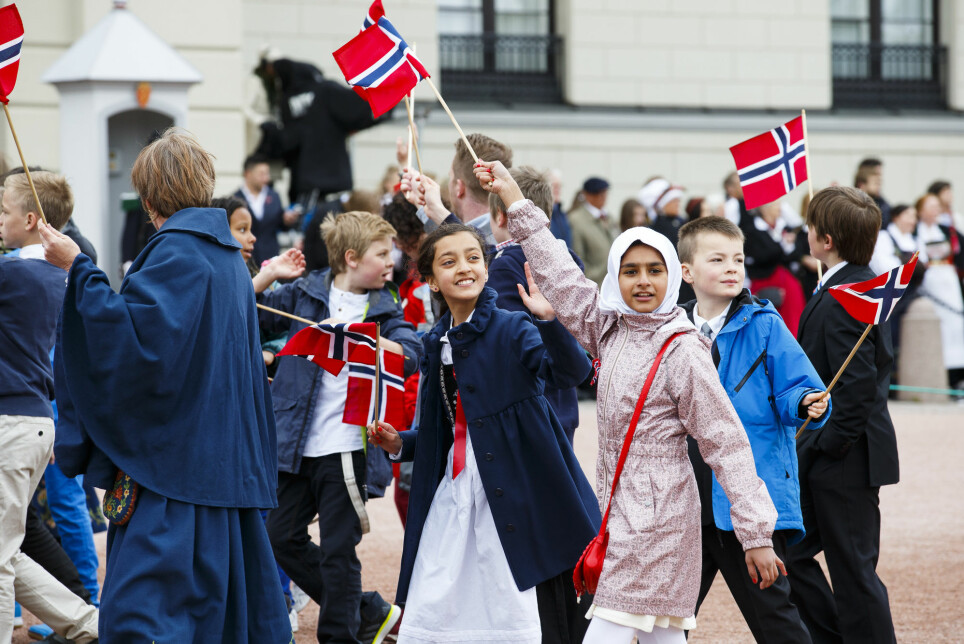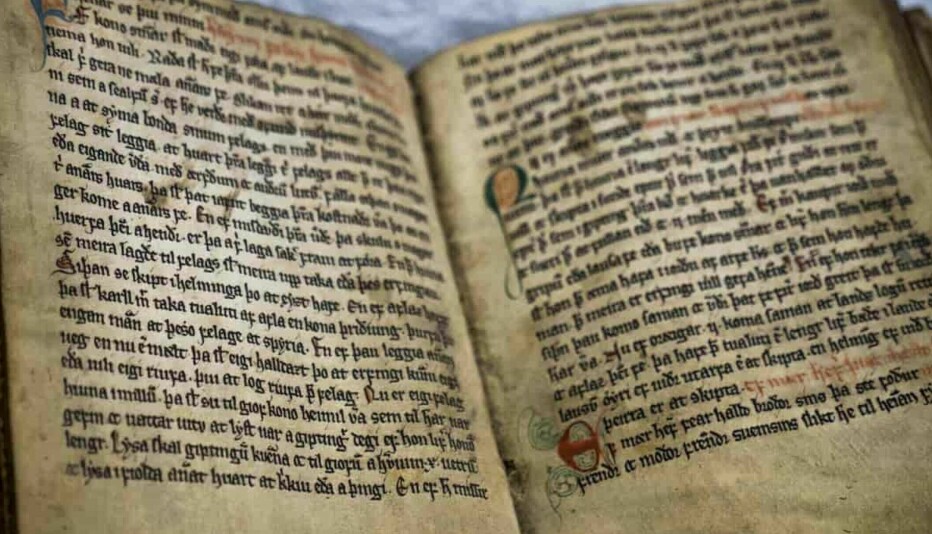THIS ARTICLE/PRESS RELEASE IS PAID FOR AND PRESENTED BY THE University of Agder - read more

The church and chauvinistic nationalism play a small role on May 17 - Norway’s national day
God plays second fiddle when people gather to celebrate May 17, according to a research paper from the University of Agder.
“The national day is characterised neither by extreme nationalism nor Christianity. I would rather say that the day has elements of a healthy or mild form of nationalism and small doses of religion,” says Pål Ketil Botvar.
He adds that he cannot answer for what the Lord does and does not do on 17 May, but the people has not given him a major role in the official celebrations.
Botvar is a professor at the University of Agder (UiA), Department of Religion, Philosophy and History.
In a recently published research paper, he summarises findings from several surveys and substudies he has done on the national day. He seeks to find out whether the day is characterised by self-righteous nationalism and what roles the church and Christianity play during the celebration.
The study ‘Civil Religion or Nationalism? The National Day Celebrations in Norway’ is published in the digital journal Religions which is open access. This edition is edited by Professor Ida Marie Høeg at UiA.

Celebrating freedom and community
“As time has passed, the national day has become as much a celebration of freedom, community and democracy as of the constitution and of the Norwegian nation,” says Botvar.
One main conclusion of his study is that religion plays a lesser role on Constitution Day today than in the past. However, some religious elements can still be found. Christianity is present in the songs that are sung, for example, not least in the national anthem written by Bjørnstjerne Bjørnson.
There are also services in many churches on this day. However, church attendance in the big cities is low, since services are often held at the same time as the children’s parade.
The vicar and important institutions
In smaller municipalities, the vicar can still play a central role as the speaker of the day. But according to the researcher, this is more due to the fact that the vicar is used to public speaking than to hear them talk about the Lord and the nation.
Another typical religious feature of the day is that the children’s parade in many small communities often goes from the school to the nursing home and the church.
“In small municipalities, schools, churches, and nursing homes are still the most important institutions in society,” says Botvar.
Consistent with previous studies
Botvar reviews a Danish and two Swedish studies about our national day in his paper. The first is from the 1990s and the last two from the time after 2010.
Researchers from our neighbouring countries are impressed with the children’s parades and the absence of military parades. They are also impressed that so many people participate in the official festivities.
The first study is critical of the fact that we are not as inclusive and colourful as our public discourse would suggest. Christians are visible in the citizens’ parade, but not atheists or gays, the paper from the 90s points out.
The last two studies are more in line with the findings from the work carried out by Botvar himself.
“The debate about whether immigrants should be part of 17 May celebrations ended somehow in the 1980s. From around the year 2000 until today, we have reason to say that the national day is an inclusive celebration,” says Botvar.
Heads of culture and the people work together
A central part of the study is the survey Botvar conducted among 205 heads of culture throughout the country. It shows that municipal authorities collaborate with schools, associations, and organisations to make sure the national day is not dominated by special interests.
“The survey emphasises that it is in all parties' interest that 17 May is an inclusive day where everyone is welcome to take part. No one wants to use it to promote their own opinions rather than the common values of freedom and democracy that most people can gather around this day,” says Botvar.
Patriotic nationalism on the national day
In his discussion of nationalism, the researcher distinguishes between three types of nationalists:
- the patriots who are proud of their country
- the chauvinists who are both proud and think that everyone else should be like us
- the xenophobes who believe that Norway is for Norwegians and that the national day is for ethnic Norwegians.
“I find a positive correlation between being proud of the nation of Norway and participating in the 17 May celebrations, while there is a negative correlation between being xenophobic and joining the festivities,” he says.
A minority of 10 percent believe that immigrants should not participate in the 17 May celebrations. 80 percent think it is important that they are involved. Compared with the 1990s, fewer people now believe that immigrants and national symbols do not belong together.
“Those with most negative attitudes towards immigrants participate less than others in the 17 May celebrations. In other words, a chauvinistic and xenophobic type of nationalism is not inherent to our national day,” says Botvar.
Translated by: Anna Svala Johannesdottir
Reference:
Pål Ketil Botva: Civil Religion or Nationalism? The National Day Celebrations in Norway. Religions, 2021.
See more content from the University of Agder:
-
How Nobel Prize winner Jon Fosse transforms anxiety into literary art
-
“Today's democracy cannot save us from the climate crisis”
-
Speech-to-text tools in classrooms: What are the benefits and challenges?
-
What causes collective collapse on the football pitch?
-
Students in specialist nursing learn a lot from realistic simulations
-
People with disabilities contribute to better technological solutions





































